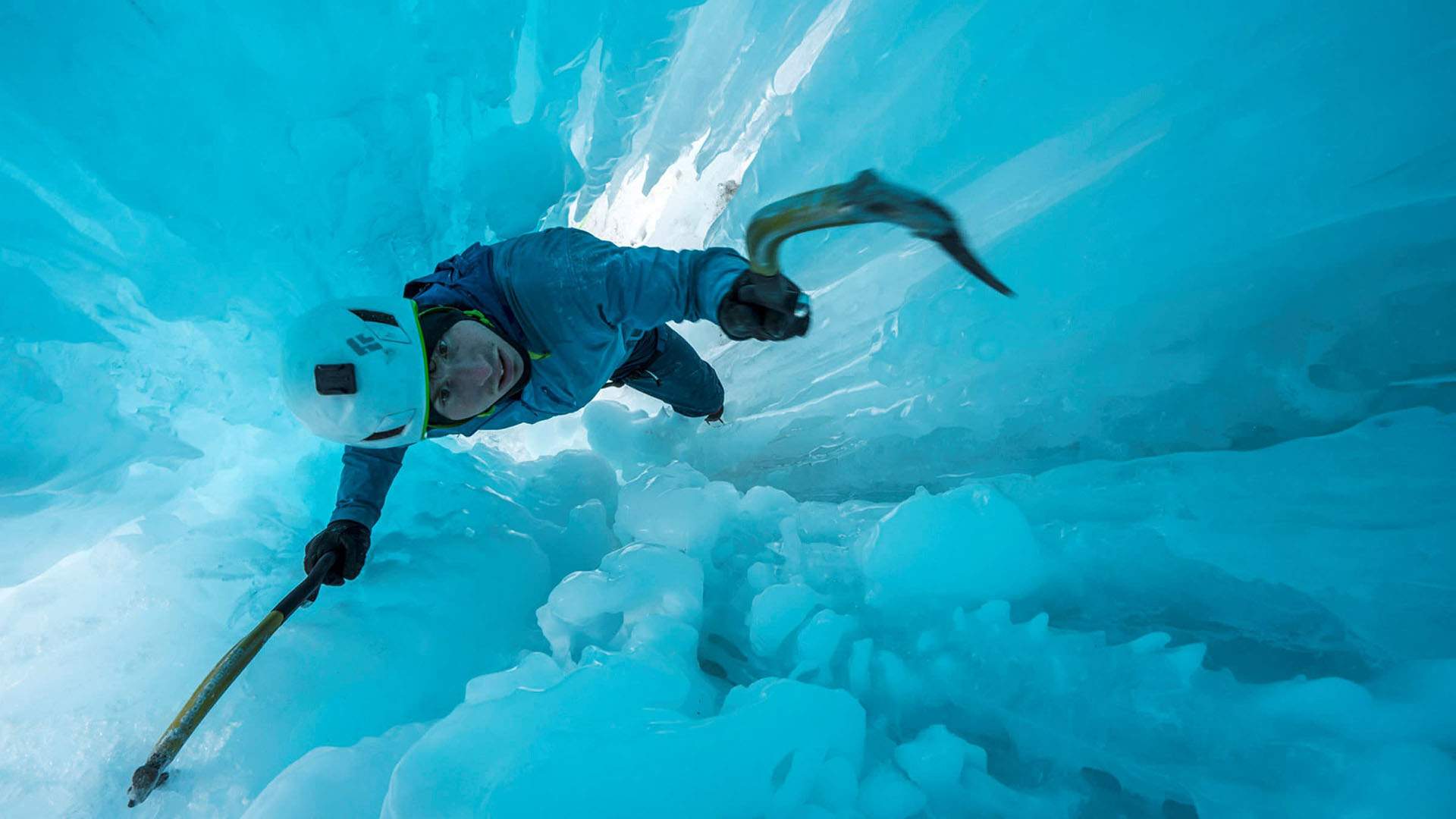The Alpinist
Filled with breathtaking mountaineering footage, this tense and thoughtful documentary focuses on Canadian alpinist Marc-André Leclerc and his free-climbing exploits.
Overview
Standing atop Yosemite National Park's El Capitan after scaling it alone and without ropes, harnesses or any other safety equipment, Alex Honnold cut a surprisingly subdued figure. As the Oscar-winning documentary Free Solo captured, he was obviously ecstatic, but he isn't the type to leap and scream with excitement. So, he smiled blissfully. He also advised the cameras that he was "so delighted". In the opening moments of new doco The Alpinist, however, he is effusive — as enthusiastic as the no-nonsense climbing superstar gets, that is. In a historical clip, he's asked who he's excited about in his very specific extreme sports world. His answer: "this kid Marc-André Leclerc."
Zipping from the Canadian Rockies to Patagonia, with ample craggy pitstops in-between, The Alpinist tells Leclerc's tale, explaining why someone of Honnold's fame and acclaim sings his praises. Using the Free Solo subject as an entry point is a smart choice by filmmakers Peter Mortimer and Nick Rosen — industry veterans themselves, with 2014's Valley Uprising on their shared resume and 2017's The Dawn Wall on Mortimer's — but their climber of focus here would demand attention even without the high-profile endorsement. Indeed, dizzying early shots of him in action almost say all that's needed about his approach to great heights, and his near-preternatural skill in the field. Scaling hard, immovable rock faces is one thing, but Leclerc is seen here clambering up alpine surfaces, conquering glistening yet precarious sheets of ice and snow.
Any shot that features the Canadian twenty-something mountaineering is nothing short of breathtaking. Describing it as 'clambering up' does him a disservice, actually, and downplays The Alpinist's stunning footage as well. Leclerc is just that graceful and intuitive as he reaches higher, seemingly always knowing exactly where to place his hands, feet and axe, all while heading upwards in frighteningly dangerous situations. As Mortimer notes, narrating the documentary and almost-indulgently inserting himself into the story, alpine free soloing is another level of climbing. No shortage of talking-head interviewees also stress this reality. Protective equipment is still absent, but all that ice and snow could melt or fall at any second. In fact, the routes that the obsessive Leclerc finds in his climbs will no longer exist again, and mightn't just moments after he's made his ascent.
Simply charting Leclerc's impressive feats could've been The Alpinist sole remit; Mortimer and Rosen certainly wanted that and, again, the film's hypnotic, vertigo-inducing imagery is just that extraordinary. Some shots peer at the mountains in all their towering glory, letting viewers spot the tiny speck moving amid their majesty in their own time, before zooming in to get a closer look at Leclerc. Other nerve-shattering scenes intimately capture every careful choice, every movement of his limbs and every decision about what to hold on to, inescapably aware that these are sheer life-or-death moments. But The Alpinist isn't the movie its makers initially dreamed of, because Leclerc isn't Honnold or The Dawn Wall's Tommy Caldwell and Kevin Jorgeson. While affable when posed in front of the camera, he's also silently begrudging, because he'd visibly rather just be doing what he loves in total anonymity instead of talking about it, having it filmed and earning the world's eyes.
Climbing documentaries frequently unfurl in layers, pairing character studies, astonishing feats and the history of the field, as The Alpinist does. But films about this risky pastime often need to grapple with their own existence and ethics, too, and the difficulties and complexities faced when making such features. Where Free Solo mused on how the act of filming might influence Honnold as he attempted his rocky quest, either putting him in more peril or encouraging him to do that himself because he was being watched, The Alpinist ponders how recording Leclerc's climbs impacts his mental experience. As touched upon again and again, including by the man himself, Leclerc sees alpinism as a transcendent mindset. It's where he's at his most free, where his body and mind work as one, and where he's firmly in the moment. He doesn't feel that with lenses pointed his way and camera crews right there with him, unsurprisingly. So, partway through the documentary's filming, he starts ducking the directors' calls and just mountaineering for himself again.
Eventually, after months of chasing — and after Mortimer and Rosen's vocal frustration at learning about Leclerc's latest alpine achievements via other climbers' social media feeds — they all agree that he'll do his thing alone first, then he'll repeat it for the cameras. The footage is no less phenomenal as a result, and the tension no less gripping. This is an affectionate movie, complete with Leclerc's mother Michelle Kuipers looking back on his childhood and free-spirited teen years, and his girlfriend and fellow climber Brette Harrington also sharing her thoughts, but it also values immersing its audience in the vivid experiences at its centre. Sweaty palms are a side effect, as they are with all the best climbing docos — which is where this film easily fits.
With his mop of shaggy hair, a mountain of enthusiasm even his camera shyness can't hide, a wide grin and a complete commitment to climbing (with Harrington, he spent years living in stairwells and tents because this type of life can take you everywhere and anywhere), Leclerc is still a dream doco subject. Although that description clearly didn't apply logistically while The Alpinist was in production, his love of reaching great heights radiates across the screen. Existing fans will already know where the film has to finish, and know why it can only have a celebratory tone, but that doesn't diminish the movie's thrills, joys, goosebumps, insights and intrigue. Similarly, it doesn't temper its interrogation of alpine climbing's frozen beauty versus its inherent dangers, or its thoughtful and compelling portrait of a person eagerly embracing both extremes.





